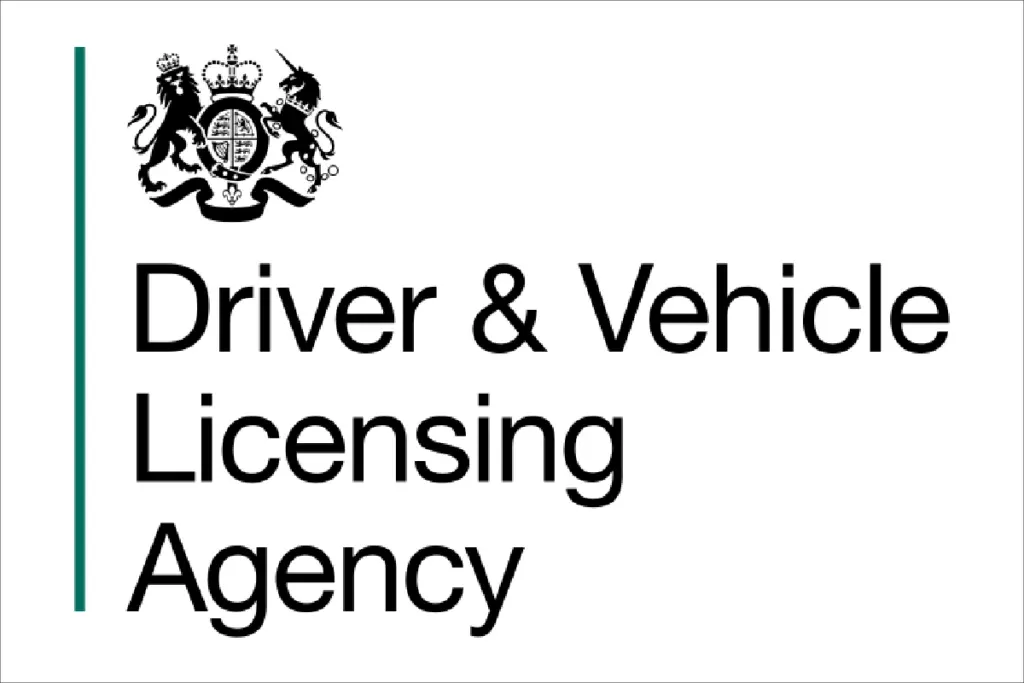The Driver and Vehicle Licensing Agency (DVLA) is an executive agency of the UK government that was established in 1990. Its primary role is to maintain a database of drivers and vehicles in Great Britain. The agency is also responsible for enforcing legislation relating to driving and vehicle ownership. Alongside registering and taxing vehicles, the UK DVLA is also responsible for issuing driving licences and collecting vehicle excise duty (VED).
What Does DVLA stand for?
DVLA stands for the ‘Driver and Vehicle Licensing Agency’. It is the UK agency responsible for the registration and licensing of drivers and vehicles in Great Britain.
What Is DVLA?
The DVLA is a crucial agency when it comes to ensuring the safety of drivers and the public on UK roads. In addition to maintaining accurate and up-to-date records of drivers and vehicles, the DVLA plays a key role in regulating and enforcing driving and vehicle ownership regulations. The agency has a wide range of responsibilities, from issuing driving licences and vehicle registration documents to enforcing vehicle taxation and roadworthiness regulations.

For companies that operate fleets of vehicles, compliance with DVLA regulations is particularly important. The agency’s regulations cover a range of areas, such as vehicle registration and taxation, driver licensing, plus vehicle maintenance and safety. Failure to comply with these regulations can result in fines, legal action, and damage to a business’s reputation.
What Circumstances Require You to Notify the DVLA?
There are a number of circumstances in which a company or individual would be required to notify the DVLA. These include:
- A change in your name or address.
- Selling or transferring a vehicle to someone else.
- Scrapping a vehicle.
- Registering a vehicle as stolen.
- Reporting a driver that has been diagnosed with a medical condition that may affect their ability to drive.
It is important to notify the DVLA of any changes to personal details or vehicle ownership, as failure to do so can result in fines or legal action.
How Do I Get A DVLA Check Code?
A DVLA check code is required when hiring a car or sharing a driving record with someone else, such as an employer. It is possible to get a DVLA check code by following these steps:
- Go to the DVLA website and proceed to the ‘View Driving Licence’ service.
- Enter the driving licence number, national insurance number, and postcode.
- Click ‘View Now’ and then ‘Share Your Licence Information’.
- Click ‘Create a Code’ and follow the on-screen instructions to generate a code.
It should be noted that the DVLA check code will be valid for 21 days and can only be used once. If the code is not used within this time, a new code will need to be generated.
What Is DVLA Fleet Number?
A DVLA fleet number is a unique identifier that is assigned by the DVLA to a fleet of vehicles. It is used to track and manage fleets and is required when registering or taxing vehicles. For businesses that operate a fleet of vehicles, it is necessary to register with the DVLA and obtain a fleet number. Registration can be done by completing an application for a first trade licence (form VTL301) and submitting it to the DVLA.
DVLA and Businesses
The DVLA plays an important role for businesses that operate vehicle fleets. It is responsible for ensuring that vehicles are registered and taxed appropriately and that drivers hold the correct licences. Businesses that operate fleets must comply with a number of DVLA regulations. These include:
- Ensuring that all vehicles are registered and taxed correctly.
- Ensuring that drivers hold the correct licences and that their details are up to date with the DVLA.
- Conducting regular checks on vehicles to ensure they are roadworthy.
- Keeping accurate records of all vehicles and their usage.
It is important for businesses to keep up to date with changes in DVLA regulations to ensure that they remain compliant. Failure to comply can result in penalties.
DVLA and Driving Licences
The DVLA is responsible for issuing driving licences in Great Britain. There are many different types of licences that drivers can hold, including the following:
- Provisional Licence: Allows drivers to learn and practice driving on the road.
- Full Driving Licence: Allows drivers to drive unsupervised on the road.
- International Driving Permit: Allows drivers to drive in other countries.
- HGV Licence: This permit allows drivers to drive heavy goods vehicles.
In order to obtain a driving licence, drivers must meet specific requirements, including passing a driving test and meeting certain health requirements. It is important for drivers to keep their licence details up to date with the DVLA, particularly if they change their name or address. Failure to do so can result in fines or legal action.
DVLA and Vehicle Registration
The DVLA is responsible for registering and taxing vehicles in Great Britain. When a vehicle is first registered, the DVLA issues a registration certificate (V5C) to the registered keeper. The V5C contains important information about the vehicle, including its registration number, make & model, plus the name and address of the registered keeper. As with businesses, failure to keep this information up to date can result in fines or legal action.
DVLA and Medical Conditions
The DVLA has a responsibility to ensure that drivers do not have any medical conditions that may affect their ability to drive safely. Drivers are required to notify the DVLA if they are diagnosed with a medical condition that may affect their ability to drive, and the DVLA may request further information or medical assessments before allowing the driver to continue driving.
It is important for drivers to notify the DVLA if they are diagnosed with a medical condition, as failure to do so can result in fines or legal action. It is also important for businesses that employ drivers to be aware of any medical conditions that may affect their ability to drive, as they have a duty of care to their employees and the public.
Conclusion
The DVLA is an important government agency that is responsible for maintaining a database of drivers and vehicles in Great Britain. For businesses that operate fleets of vehicles, compliance with DVLA regulations is crucial to avoid fines and other legal action. The DVLA is also responsible for issuing driving licences, registering and taxing vehicles, and ensuring that drivers with medical conditions can safely operate their vehicles. Drivers and vehicle owners must keep their details up to date with the DVLA in order to avoid fines or legal repercussions.
Sources:
- https://www.gov.uk/government/organisations/driver-and-vehicle-licensing-agency
- https://www.cinch.co.uk/guides/ask-the-experts/what-does-the-dvla-do
- https://www.vettinggateway.com/post/whatisenvolvedinadvlacheck
Disclaimer
This content is provided for informational purposes only and is not meant to be an endorsement or representation by FleetGO.com or any other party. This information may contain inaccuracies or typographical errors, despite our efforts to ensure accuracy. FleetGO.com accepts no responsibility or liability for any errors or omissions, and is not responsible for the contents of any linked website or any link contained in a linked website. Please refer to our full disclaimer for more details.


